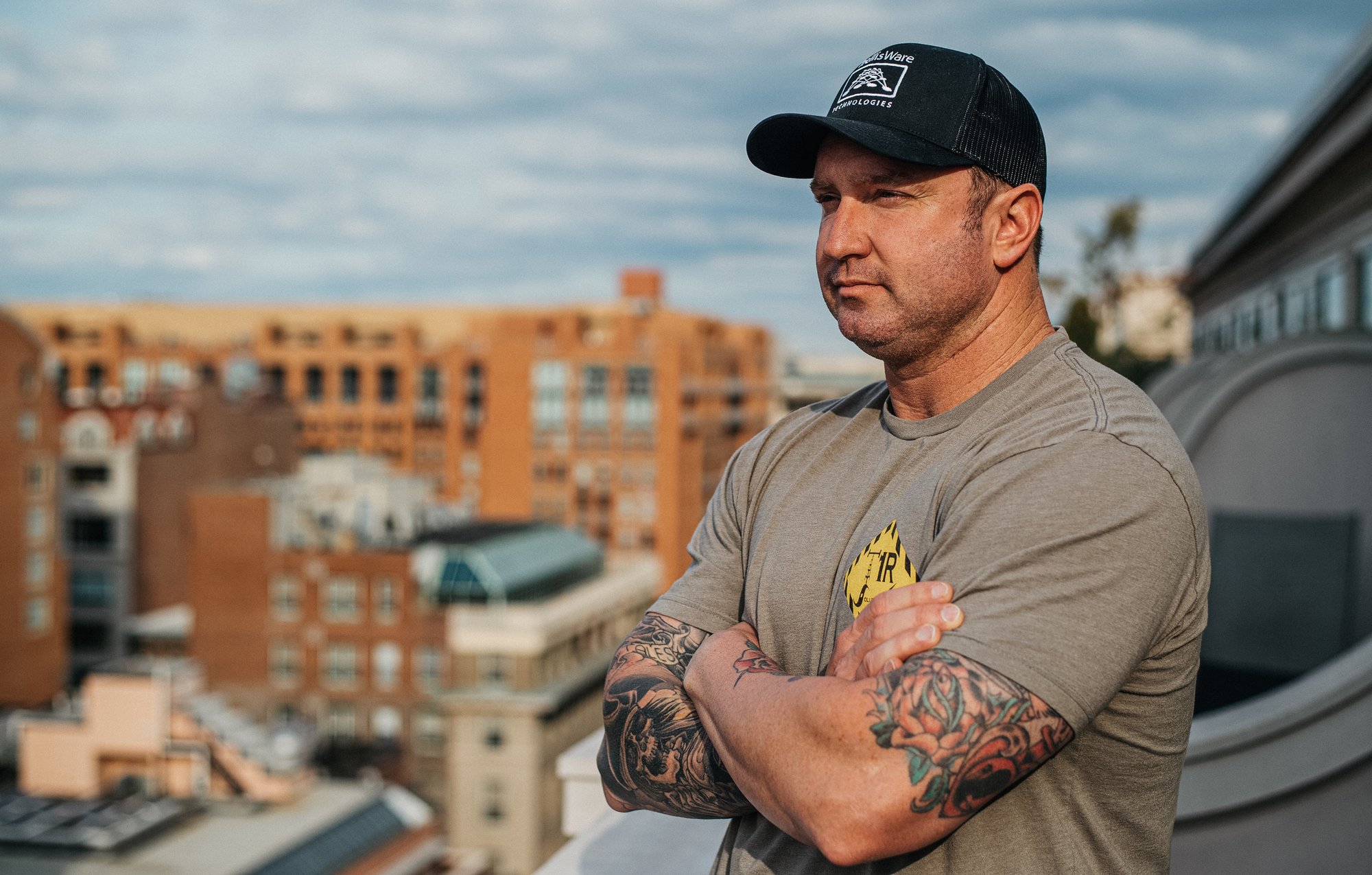
Master Sgt. Richard Stayskal was diagnosed with lung cancer long after military doctors missed a tumor in his scans. But after years of fighting for service members' ability to sue the Department of Defense for medical malpractice, his claim was denied. Photo by Jayme Pastoric/Coffee or Die.
After fighting like hell to pass a bill that bears his name and celebrating the fact that active duty service members would now have a mechanism to sue the Department of Defense for medical malpractice — after all that, Master Sgt. Richard Stayskal watched officials deny his malpractice claim earlier this month.
And he wasn’t the only one.
When President Donald Trump signed the 2020 National Defense Authorization Act, he seemingly untangled a knot that had ensnared service members for decades. The Richard Stayskal Military Medical Accountability Act outlined a process that carved out an exception to the longstanding Feres Doctrine barring active duty service members from suing the Department of Defense.
Service members who were injured by medical care provided under military auspices outside of a combat zone still couldn’t sue the DOD under the Federal Torts Claim Act, but they could now submit claims directly to the judge advocates of their military branch and have those claims adjudicated by the DOD itself.
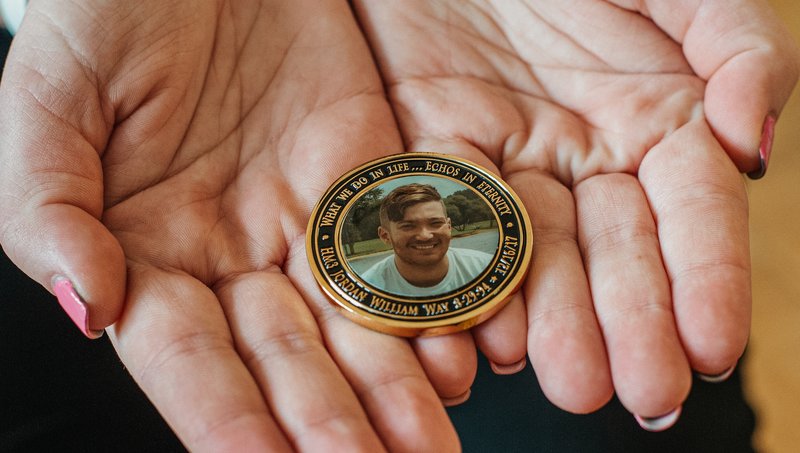
Suzi Way distributes coins in memory of her son, Navy Corpsman Jordan Way. Photo by Jayme Pastoric/Coffee or Die.
It wasn’t perfect. But it gave hope to hundreds of service members or surviving family members that they might finally receive compensation for their injuries, pain, and suffering.
Today, many of those claimants gather on Capitol Hill to call attention to the broad denial of submitted medical malpractice claims.
“The intent and what was achieved with this legislation was a fair path to compensation,” said Josh Connolly, vice-chair of Protect Our Defenses and former chief of staff to Stayskal Act co-sponsor Congresswoman Jackie Speier, during the Wednesday press conference. “The military decided to willfully disregard congressional intent and to gut this legislation.”
Coffee or Die contacted all the service branches to confirm the status of claims, but only the Navy and Air Force responded by press time.
The Navy has approved four medical malpractice claims for payment, denied 88 claims, and 63 claims are currently being processed.
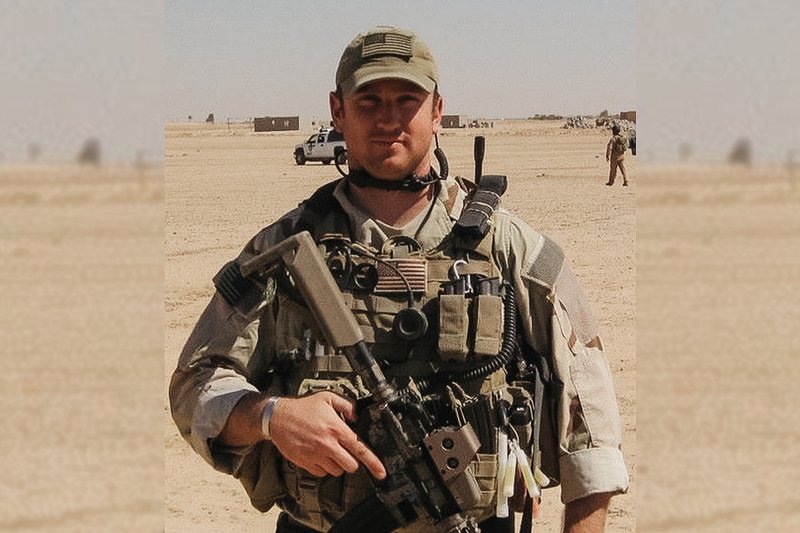
The Stayskal Act, named for Master Sgt. Richard Stayskal, creates a loophole in the decades-old Feres Doctrine, a Supreme Court precedent that prevents active-duty military from suing the federal government. However, many medical malpractice claims are still being denied. Photo courtesy of Richard Stayskal.
The Air Force has received 133 claims, settled five, and denied 30 without chance of appeal. Nine additional cases were appealed to the Defense Health Agency, which denied seven and is still considering the remaining two.
According to a statement obtained by the Washington Post, the Army has received 202 claims, denied 144, and approved 11.
When Stayskal, a Green Beret with 24 years of service, heard his claim was denied, he was not surprised.
“I knew they were going to keep going, however long it takes, to find a doctor who will say it’s not malpractice,” Stayskal told Coffee or Die. “They’re going to take as long as they can, push as hard as they can. That’s what the military does. They’re going to treat it just like a firefight. If I was in a firefight, I would sit back, gather all my intel, be patient — and then I would hit you as hard as I could and watch you stumble backward.”
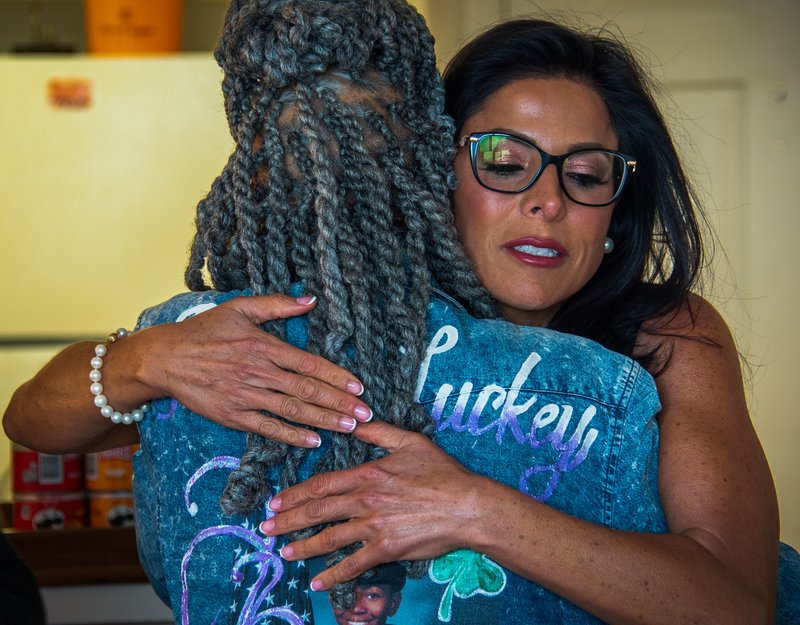
Attorney Natalie Khawam took on the Stayskal case almost five years ago, and in the years since, more and more families have come to her for help with their own medical malpractice cases. Photo by Jayme Pastoric/Coffee or Die.
In January 2017, Stayskal passed a required physical examination before he attended dive school. Five months later, he had to drop out of dive school when he found himself increasingly unable to breathe. He received no answers at the medical clinic at Fort Bragg, North Carolina. When he arrived at the ER at Womack Army Medical Center coughing up blood, doctors shrugged.
It wasn’t until he was finally cleared to see a civilian pulmonologist that he received a diagnosis of stage 3A lung cancer. And all the signs had been apparent in the scans done the previous January.
Feres v United States, a Supreme Court case decided in 1950, banned active duty members from suing the Department of Defense, even for medical injuries incurred outside of a combat zone. Stayskal didn’t accept that.
He joined forces with Natalie Khawam, a lawyer with a passion for defending the rights of service members and veterans. Although their bill, as originally drafted, was halted in the Senate Armed Services Committee by Sen. Lindsay Graham, a modified version offered a solution. Instead of going through federal courts, malpractice claims would be in the hands of the judge advocate corps.
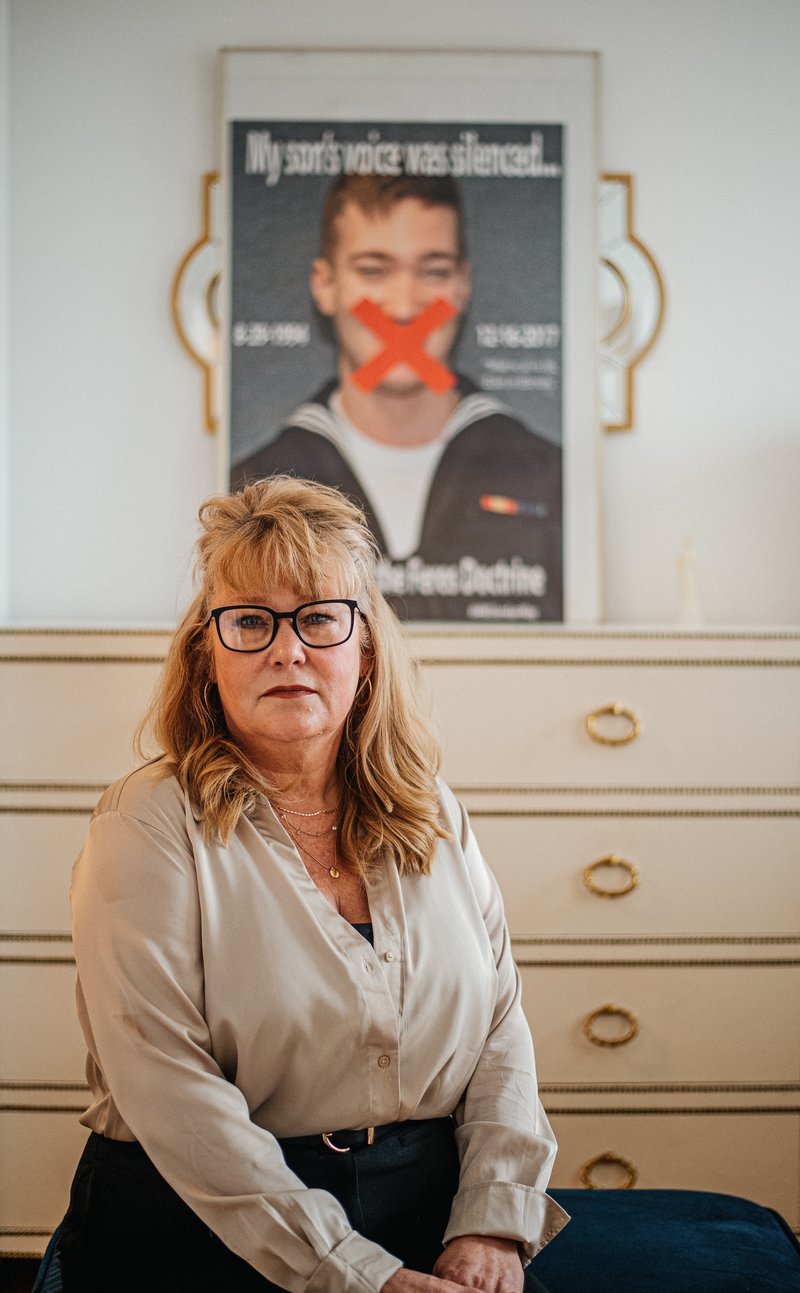
Suzi Way refuses to stop fighting for justice in Jordan’s medical malpractice case, despite the denial of his claim. “I’m just going to keep showing up,” she said. Photo by Jayme Pastoric/Coffee or Die.
Now that the vast majority of claims are being denied, Stayskal and other claimants are processing their frustrations and trying to figure out where they go from here. For Stayskal, what he was looking for most was accountability.
“It's about the money, but it's not about the money,” Stayskal emphasized. “The money was just a representation of admission of guilt and how they would proceed with every case after. If they paid me fairly, maybe they would pay everyone else fairly. But if they pay me jack, they’re going to be like, ‘We didn’t even have to pay this guy, and his name’s on it — why would we pay you?’”
The Army informed Stayskal in the denial letter that there was “no evidence that [Master Sergeant] Stayskal’s prognosis or chance of survival was adversely affected by the delay in the diagnosis of lung cancer.”
“You never, ever, EVER leave a fallen comrade,” Congressman Mike Waltz, himself a Green Beret, said Wednesday. “I don't care if it's in combat. I don't care if it’s in training. I don't care if it's in a hospital. You never leave them behind […] To say that nothing would have changed had the diagnosis been correct is bullshit […] Bottom line is we changed the law. Now we're going to force the Department of Defense to enforce the law.”
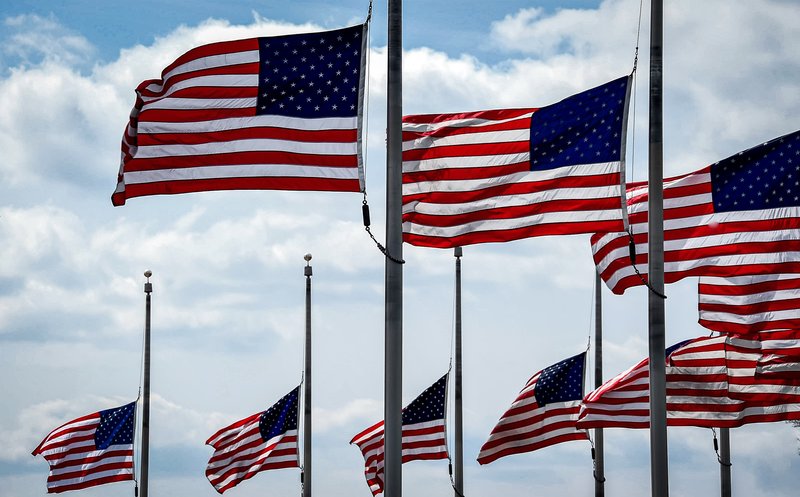
Flags at half-mast in Washington. Many service members and their families with denied medical malpractice claims will gather on Capitol Hill Wednesday, March 29, 2023. Photo by Jayme Pastoric/Coffee or Die.
Stayskal did receive a letter from Secretary of the Army Christine Wormuth indicating that she was planning to pay him $600,000 from a discretionary fund.
“She’s admitting that she knows they’re wrong,” he said. “Maybe she can’t say it because she’s Secretary of the Army, she’s not an attorney. But I see it as an admittance of guilt, anyways. It’s this quiet whisper of, ‘We got it wrong.’”
The Army had not responded to Coffee or Die’s request for comment at press time, but told the Washington Post that “Wormuth was only ‘considering’ making a payment of an unspecified amount to Stayskal.”
“I don’t get deep into other cases, but I hear enough, and basically the tone is unless you died, we ain’t paying ya,” Stayskal said. “The tone has been set.”
Even death isn’t enough to guarantee a successful outcome to a claim under the Stayskal Act. The family of Navy Corpsman Jordan Way also had their claim denied.
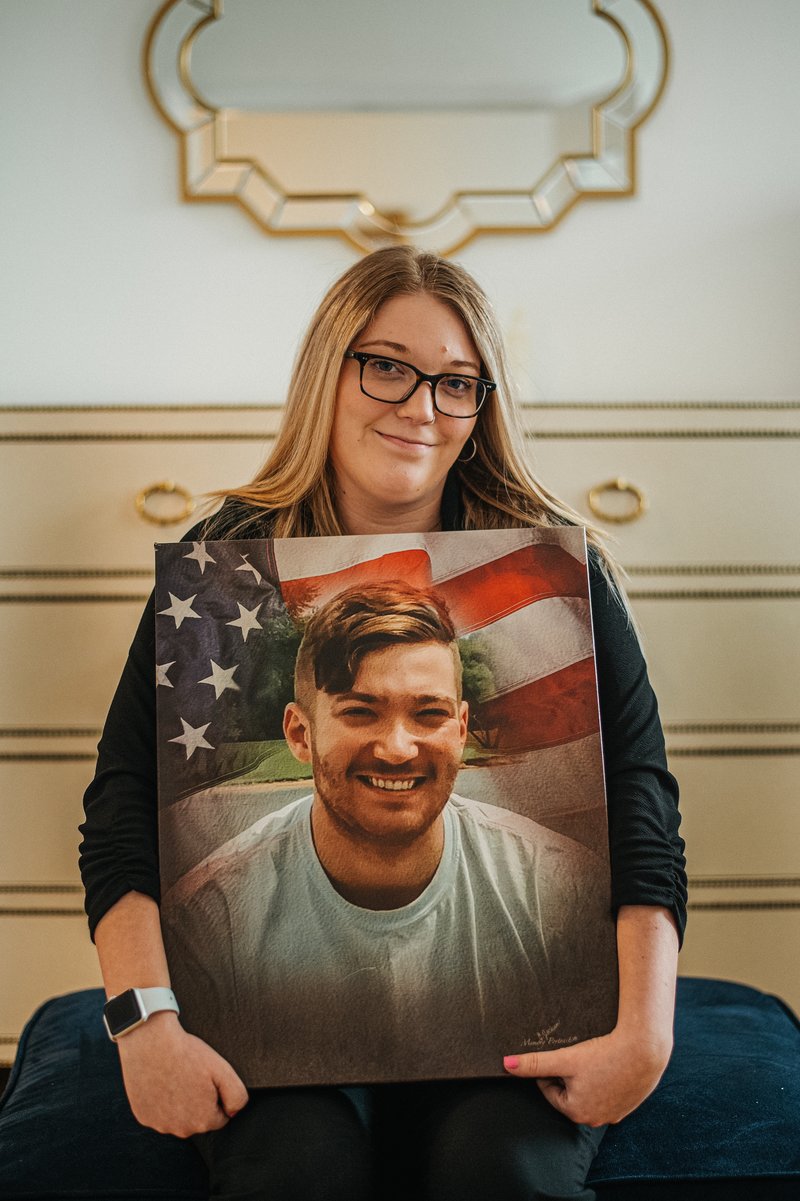
Jenny Way, Jordan's sister, with a portrait of Jordan. Photo by Jayme Pastoric/Coffee or Die.
“‘Medical standards were met,’” Way’s mother, Suzi, said, quoting the letter they recently received. “That was the word, ‘medical standards were met.’ I mean, that’s like razor blades going down.”
Way died following shoulder surgery at Twentynine Palms Base in 2017. Doctors overprescribed opiate painkillers for his recovery without physically checking his vital signs, failing to notice that his “opiate-naive” body was not processing the medication effectively. Way became hypoglycemic, and his organs shut down.
“The pharmacy tech that was overdosed,” Suzi said with a rueful laugh. “It’s so fucked up.”
Now six years since her son’s death, Suzi Way isn’t going to stop fighting.
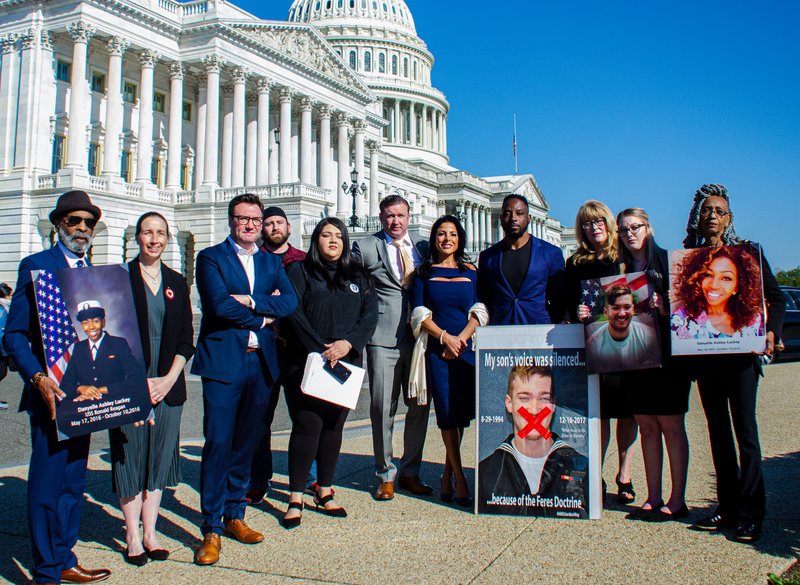
“I see this as nothing short of deception at play,” Richard Stayskal, center, said at the press conference. “I stand here on behalf of an entire generation and on behalf of future generations to ensure what happened to me will never happen again.”
“When [the Stayskal Act passed], it was at that moment that I really started grieving the loss,” she said. “Because I hid it so hard with, ‘We’ve got to fight for justice!’ And then the claim was denied, and I’m just like, oh, I can't stop. I had to really think this through. Why am I doing this to myself? It's not going to bring him back. Is it making a difference, are you just picking a scab and it just isn’t healing? But I’m just going to keep showing up.”
“I wasn’t very hopeful from the get-go,” Stayskal said, looking back on the three years since the act that bears his name was passed. “I was hopeful that it would get there. I’m tired of thinking about this stuff. I was hoping at this point I would be working on amendments, tweak it a little better. So now I feel like I’m starting over. I feel like I’m about to fight harder than I ever did.”
Sen. Markwayne Mullin, co-sponsor of the Stayskal Act, suggested that Congress could work to change the language of the bill to require all denied claims to be referred to a third party outside of the DOD to receive an unbiased opinion.
“The fox is guarding the henhouse,” Mullin said at the press conference Wednesday, “and changes have to be made.”
This article has been updated since its original publication to include information from a press conference held on Capitol Hill.
Read Next: The Long and Difficult Road to Changing Feres Doctrine

Maggie BenZvi is a contributing editor for Coffee or Die. She holds a bachelor’s degree in political science from the University of Chicago and a master’s degree in human rights from Columbia University, and has worked for the ACLU as well as the International Rescue Committee. She has also completed a summer journalism program at Northwestern University’s Medill School of Journalism. In addition to her work at Coffee or Die, she’s a stay-at-home mom and, notably, does not drink coffee. Got a tip? Get in touch!
BRCC and Bad Moon Print Press team up for an exclusive, limited-edition T-shirt design!
BRCC partners with Team Room Design for an exclusive T-shirt release!
Thirty Seconds Out has partnered with BRCC for an exclusive shirt design invoking the God of Winter.
Lucas O'Hara of Grizzly Forge has teamed up with BRCC for a badass, exclusive Shirt Club T-shirt design featuring his most popular knife and tiomahawk.
Coffee or Die sits down with one of the graphic designers behind Black Rifle Coffee's signature look and vibe.
Biden will award the Medal of Honor to a Vietnam War Army helicopter pilot who risked his life to save a reconnaissance team from almost certain death.
Ever wonder how much Jack Mandaville would f*ck sh*t up if he went back in time? The American Revolution didn't even see him coming.
A nearly 200-year-old West Point time capsule that at first appeared to yield little more than dust contains hidden treasure, the US Military Academy said.












